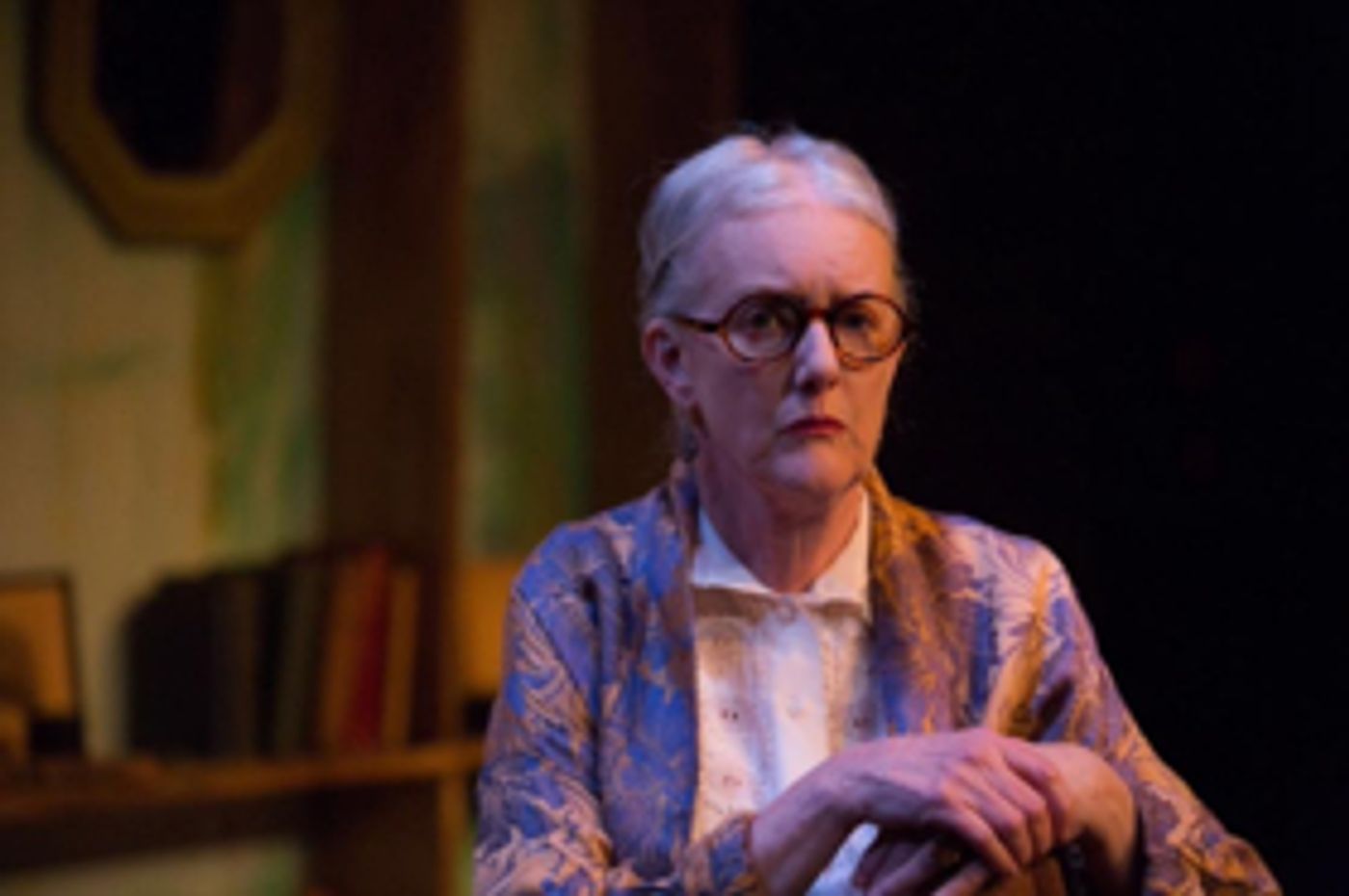Review: HILDA AND VIRGINIA, Jermyn Street Theatre

![]() Jermyn Street Theatre continues their pursuit of strong women presenting Maureen Duffy's A Nightingale in Bloomsbury Square and The Choice as a double bill directed by Natasha Rickman.
Jermyn Street Theatre continues their pursuit of strong women presenting Maureen Duffy's A Nightingale in Bloomsbury Square and The Choice as a double bill directed by Natasha Rickman.
A Nightingale... sees Virginia Woolf looking back on her life on the verge of committing suicide. She's written her goodbye-letters and her decision is taken, so she decides to address her controversies and quirks in the stream of consciousness of a free spirit barely tamed by the world.
She compares her books to children and shows strong skepticism towards Freud; she recalls her sapphic escapades with Vita and admits her envy for her sister Vanessa. Woolf opens up about her private life in Duffy's exquisite prose, the playwright sprinkling strokes of poetry in her script.
It's a pity Sarah Crowden doesn't manage to fully convey the beauty of Duffy's writing. She stumbles through her lines, subtly asking for cues when she's not rushing to get to the end of the sentence. Regrettably, the actress' failing memory considerably impacts the show and turns her performance into the ghost of what it could have been.
However, when her grasp on the material doesn't falter, she succeeds in conveying Woolf's essence. She portrays the character as a wild child who tried her best to avoid being dominated by the patriarchy and who's going to end it on her own terms.
Crowden turns into Hilda of Whitby, abbess of the monastery chosen for the Synod of Whitby in 664AD, in The Choice. While the previous monologue was delivered to the audience (as one would expect from a writer such as Woolf), now she is reasoning with a higher entity. Once again, the issues with her lines sadly prevent her to give a well-rounded performance.
In A Nightingale... she was aided by Designer Verity Johnson's articulated reconstruction of the author's study (books and small paintings line the walls, a couple of mugs are scattered on the shelves, and even a skull); but The Choice is stripped down to a chest with some candles on top (the shelves are hidden by drapes with two rather unappealing rose windows sketched with paint), so she shifts into a static presence on the stage.
The direction voluntarily mirrors the set design in terms of dwindling down to near-nothing in the second act. Rickman moves Crowden around and lets her interact with the props as much as she can to escape the immobile tendencies of monologues initially, but not later on.
She picks up and drops books, climbs on the chair and plays with it erratically at the start, but the slight impression of spontaneity slows down quickly as the actress staggers her words and stops abruptly when she becomes Hilda.
Pairing the two women is definitely a commendable choice, but the potential that Hilda and Virginia has is almost completely lost with this unfortunate production.
Hilda and Virginia runs at Jermyn Street Theatre until 3 March.
Reader Reviews
Videos

